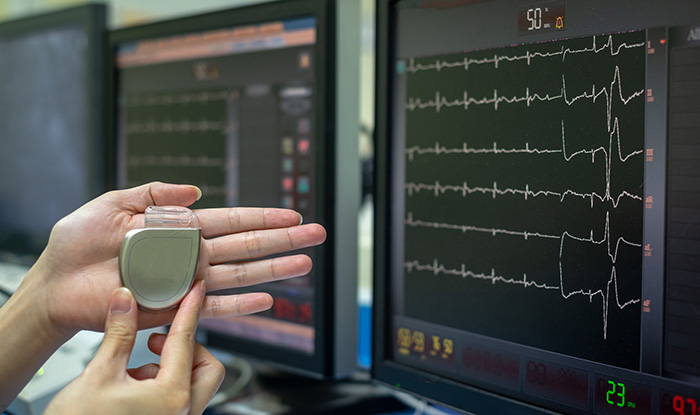Titanium CNC Machining
History of Titanium
The discovery of Titanium began in 1791, and it was named after the Titans in Greek mythology. Titans are ancient gods who ruled the world in Greek mythology. In many European languages, the word “titan” is often used. It is expressed as “huge”, “great”, and it is also a powerful symbol. The earliest production of pure titanium (99.9%) in history was not until 1910. During this period, research on how to refine titanium more efficiently and reduce costs The way titanium is constantly innovating
From the 1950s to the 1960s, the Soviet Union took the lead in using titanium for military and submarine purposes. Since then, titanium has been used in various military aviation applications, especially in the manufacture of high-performance jets. At present, the titanium industry is growing at an average annual rate of about 8%. With rapid development, the current international annual output of titanium alloy processing materials has reached more than 40,000 tons, and there are nearly 30 types of titanium alloys. Among them, the most widely used titanium alloys are Ti-6Al-4V (TC4), 64 titanium, Ti-5Al-2.5Sn (TA7) and industrial pure titanium (TA1, TA2 and TA3). Titanium is quite abundant on the earth. The global ilmenite reserves are about 1.4 billion tons, and the rutile reserves are about 100 million tons, ranking fourth after aluminum, iron, and magnesium.

The Advantages and Disadvantages of Titanium Alloys
The Advantages
- High Strength
CNC machining with titanium is becoming increasingly popular due to its numerous benefits. Titanium has a high strength-to-weight ratio, meaning it’s strong yet light in weight. Additionally, titanium alloys have superior corrosion resistance and are highly heat resistant, making them ideal for aerospace applications where performance and reliability is key. With the use of CNC machines, precision cuts can be made quickly to create complex parts that meet exact tolerances.
- High Thermal Strength
Titanium is a highly durable and heat-resistant metal, with its thermal strength allowing it to easily withstand temperatures of up to several hundred degrees higher than aluminum alloys. Furthermore, titanium alloys are able to maintain impressive levels of strength even at the medium temperature of between 150°C and 500°C. In comparison, aluminum alloys begin to significantly decrease in strength at temperatures of 150°C and have an upper end working temperature of 200°C.
- Good Corrosion Resistance
Titanium is a highly corrosion-resistant metal. It can withstand the constant exposure to moisture from atmospheric conditions and seawater, as well as resist pitting and stress corrosion. In addition, it is resistant to bases, halides, and most organic materials. However, titanium has low corrosion resistance in reducing oxygen environments and with chromium salts.
- Low- Temperature Performance
Medical machining utilizing titanium is becoming more and more popular due to its strong corrosion resistance as well as its ability to perform at low temperatures. This makes it an ideal choice of material for many medical instruments and components, especially in extreme or aquatic environments. Additionally, some titanium alloys, such as TA7 are able to remain plastic even at extremely low temperatures of -253°C, making them ideal for specialized roles.
- High Chemical Activity and Small Thermal Conductivity
Titanium is a popular material for CNC machining due to its high strength and chemical resistance. It also has low thermal conductivity which makes it ideal for applications where reducing energy transfer is important. While the thermal conductivity of titanium (15.24W/(mK) is lower than other metals such as nickel, iron and aluminum, the thermal conductivity of titanium alloys are usually much higher, typically dropping by about 50%.
The Disadvantages
Titanium is one of the most chemically inert metals, which makes it an ideal choice for many industrial and consumer applications. However, this same property can adversely affect its processing at high temperatures, where it reacts very little to other materials. As a result, working with titanium alloys needs special techniques that go beyond traditional refining, melting and casting methods, making them more difficult to work with than other metals.
Titanium alloys, due to their strength, heat resistance, and corrosion-resistant properties, are highly valued in the aircraft and other high-end industries. However, this material is also very expensive. Because of its cost, more precise CNC machining methods become necessary when using titanium alloy components; this further adds to the price of fabrication.
The Industries Application of Titanium CNC Machining
Titanium is a popular choice in the aerospace, marine, medical and energy industries due to its excellent strength-to-weight ratio, good corrosion resistance and biocompatibility. CNC machining is often used to fabricate parts out of titanium alloys because of their high strength and light weight compared to steel. The process involves cutting materials precisely with different cutting tools and CNC machines in order to create desired shapes and components. This method of manufacturing ensures accurate results with repeatedly impressive quality that make it a great choice for creating titanium
components used in various industries.
Medical-Related Uses of Titanium Including:
Pacemakers
Drug pumps
Bone growth simulators
Medical prostheses
Defibrillators
Neurostimulation devices
Battery components
High-Tech Uses of Titanium Including:
Titanium is widely used in the CNC machining industry for its lightweight strength and durability, making it particularly well suited to high tech industries. Titanium is corrosion-resistant, can withstand high temperatures, and is naturally hypoallergenic, making it perfect for aerospace and medical applications. These upscale parts are commonly found in defense, automotive, and even consumer electronic products thanks to their adventurous characteristics!
